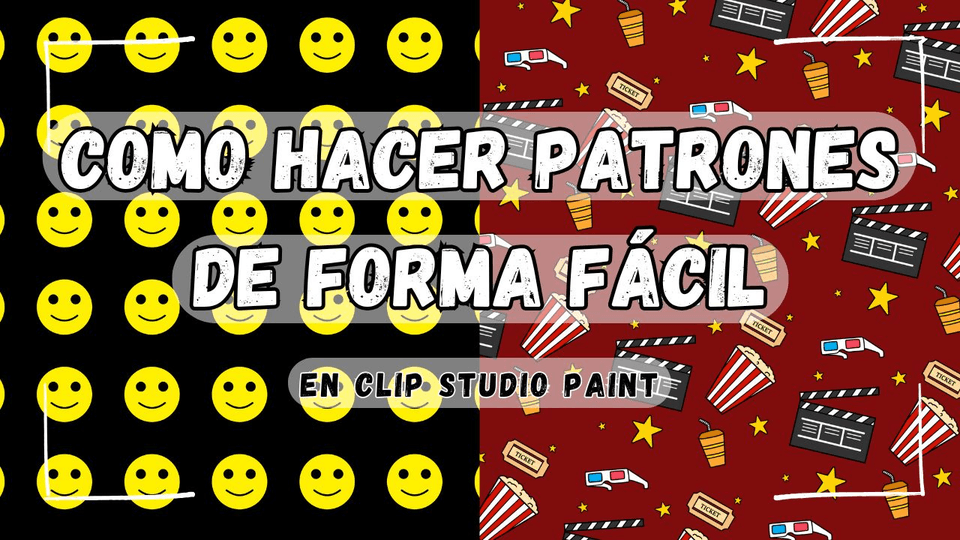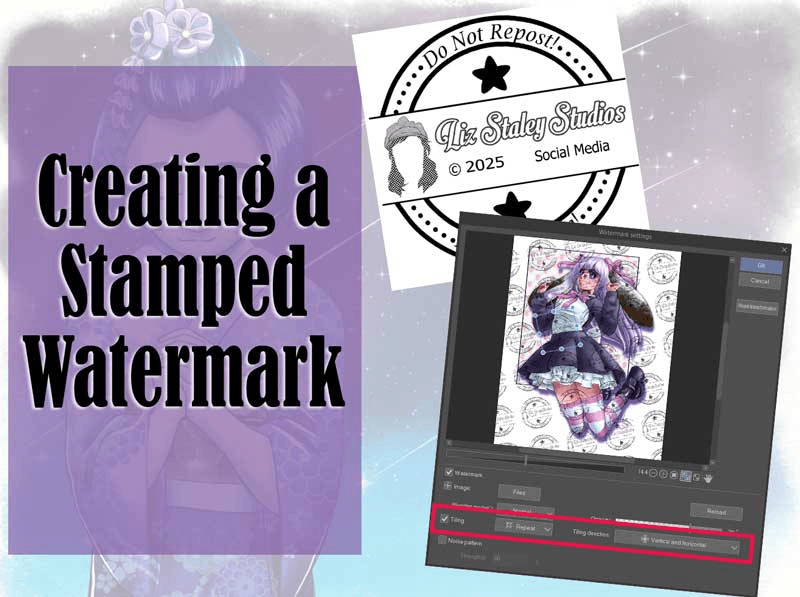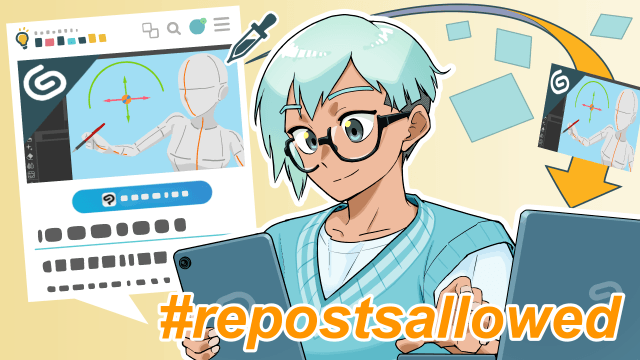Tips and tricks using Layer Property
Hello everyone! Today’s tips are about the simple but very fancy things you can do with the Layer Property palette. I use this palette a lot so I have many to share. I hope you won’t be overwhelmed by all those tips below!
0. Where to find the Layer Property palette
If you can’t see the Layer Property palette on the screen, go to Menu bar > Window > Layer Property.
Then you can dock it wherever you want.
1. Bold outline
This is very useful to accentuate your character, or making stickers outline for cutting.
You can add a Border effect to a single layer or a whole folder. For this example, I select the folder.
Click "Border effect" on the Layer Property palette. The default is a white border.
You can set the thickness of edges on the palette. Click the bucket to change the Edge color to the active color.
Alternatively, click the Set edge color swatch to open Color settings and choose a color from there.
You can apply the Border effect multiple times, but doing so requires rasterize and/or merge layers (sometimes you can put the folder with border effect into a new folder, and apply the effect on top). I recommend duplicating your folder/layer before continuing.
In this example, I use Ctrl C then Ctrl V to duplicate the folder above. Its Border effect is also duplicated. Then right-click the folder/layer and choose Merge selected layer (with folder) or Rasterize (with layer).
The Border effect becomes one with the drawing.
Now apply the Border effect a second time.
Right-click and Rasterize the layer again.
Apply the Border effect a third time.
2. Finding mistake when making transparent background
If you want to print merchandise or make video game/Vtube assets, you'll need a transparent background. After finishing the drawing, use Border effect with an easy to see color. You may find those hard-to-see airbrush marks or unwanted lines, and delete them afterward.
Looks like a clean drawing on a transparent background, ready to export as .png…
But Border effect tells us there is still dust that needs to be cleaned!
When zoomed in, there is indeed overflow airbrush mark and dust. (You can use the Object tool [O] to go to the layer and erase the dust.)
3. Draw line and color at the same time
Sometimes this is the fastest way to draw both simple and complex objects.
Create a layer with Border effect. Choose a dark Edge color. Pick your fill color too.
Draw the shapes/add details with the G-pen [P] or similar brushes. Be sure to use 100% opacity.
Fill the shapes using the Fill tool [G} or Direct draw > Lasso fill [U]. Fix mistakes with the Eraser [E].
I create another layer to draw the hair above the head. Guess I'm overdo it a bit ^^;;
You can Lock transparent pixels and keep drawing on it to add more details!
Add shadow/highlight by creating new layers and clip them to the hair layer, put them in Multiply/Overlay mode.
Actually you can use the Decoration brushes with this technique too!
Add shadow with a Multiply layer clipped to the girl’s body.
4. Create line art
You can make line art from what you’ve drawn too. For this to work best, use pure black as the Edge color and draw with white. (If your drawing isn’t white, Lock transparent pixels then use a white G-pen/Lasso fill tool to color it white.)
Rasterize the layer.
Edit > Convert brightness to opacity.
Now you have your line art.
Continue to coloring as usual ^^
5. Using Tone to make decorative elements
If you apply Tone to a layer/folder, the colors will change into black-and-white tone dots. The darker the color is, the denser the tone is. This is cool, but not what I want to talk about.
Create a new layer. Draw on it using a soft airbrush with pure black. Then draw some shapes (I'm using the Rectangle tool, but you can use the G-pen with Fill tool, Lasso fill tool and others) with various shades of gray.
Click Tone and the grays turn into different sizes of tones.
Now lower the Frequency to 5 - 10. The dots become bigger, creating a cool graphic effect!
What's cooler is you can change the dots' shapes in the dot settings.
You may see that there is white space between the dots. Just change the density to Use brightness of image to make the tone transparent.
Now you can use Layer color to change them to the color you like.
It's also possible to clip them to the layer/folder beneath!
If you want to further modify the tone, right-click > Rasterize (don't use Layer color yet, leave it black).
Now you can edit the tone using Ctrl T, Layer color, or Lock transparent pixels and paint on them.
I hope you can find something useful in this tutorial. Thanks for watching!
If you like this, visit me at my pages! Let's have a chat:D





















Comment